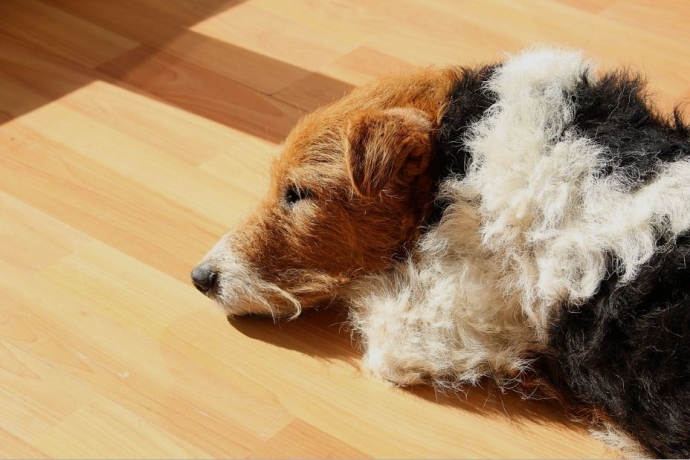
Being a responsible pet owner involves more than just providing food, water and health care for your dog. It requires you to provide a healthy living environment for your pet. This includes taking steps to keep the air quality in your home clean to prevent your dog from developing respiratory problems. There are many factors in your air that may affect the health and safety of your dog that few dog owners are even aware of. Make sure that you do the proper research into the full care and needs of any pet you own, starting with these things that every pet owner needs to know about their air quality.
Dangerous Fragrances
Air fresheners, essential oils, and candles are often used today by homeowners looking to eliminate unseemly odors and create a calming atmosphere. However, all of these contain potentially harmful chemicals that can cause respiratory problems for pets, especially small dogs. Essential oils are incredibly concentrated, and while they are generally safe for humans when properly diluted, a dog or even cat’s respiratory system is not prepared for such concentrated amounts of any herb. Use of essential oil diffusers can actually kill your pet. Fabric sprays, as well, can contain VOCs that pollute the air and are hazardous to your pet’s health. Keeping pet beds, rugs and carpet clean can help reduce dog odor. Chemical-free, organic or eco-friendly laundry detergent, floor cleaner, and upholstery sprays should be sought out as safe alternatives for you and your pet.
Ventilation
Dogs and their owners can benefit from an air purifier. Air purifiers are a good way to eliminate pet dander, pet hair, and odors from your home. This is especially important for pet owners who have allergies and is beneficial to the health of your pet, as well. When hair and dander build up, your dog is just as susceptible as you to developing respiratory issues and infections. When shopping for an air purifier that’s ideal for a home with pets, take time to do the research and compare features to make the wisest selection for your situation. Most purifiers that are built to catch fur and dander are specially labeled as such and should be considered over other systems.
HVAC System
As a homeowner, you should have your HVAC system routinely inspected to ensure it’s operating at its best. You’ll need a professional to do inspections and HVAC repair. As dogs and cats release more hair and dander, you’ll want to ensure that you change the filters out more frequently, as well, to compensate for the increased particle load. You can get an idea of how often to do this with some research into the brand you use. If the company doesn’t provide any particular guide themselves, you can often find the information you need in pet owner forums and websites.
Allergies
A variety of things can cause canine allergies. Bad air quality within the home is one cause. In addition to the previously mention chemical pollutants, cigarette smoke and smoke from a woodstove or fireplace can cause a dog to develop allergies. Dust, mold, and pollen can also what is known as inhalant allergies in your dog. To help avoid inhalant allergies in your dog, diligently clean upholstery, carpet, rugs and pet bedding to prevent dust from remaining trapped there. A dehumidifier can help remove moisture from the air in your home thereby preventing mold. Running a ceiling fan or oscillating fan is a good way to keep air circulating in your home. If you notice signs of allergy in your pet (they are generally the same as humans, with coughing and sneezing and rashes) then work with your vet to determine the cause and eliminate the irritant from your home where possible.
Being proactive regarding air quality in your home is the best way to prevent more costly problems from occurring. Concentrate on using only natural, eco-friendly products in your home, while ensuring that the majority of your air is clean and free of even essential oils or other concentrated particles. This will be invaluable in maintaining the health of your dog and be healthier for you in the long run, as well.

